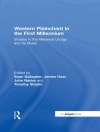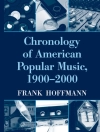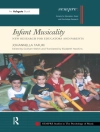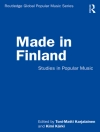Music is powerful and transformational, but can it spur actual social change?
A strong collection of essays, At the Crossroads of Music and Social Justice studies the meaning of music within a community to investigate the intersections of sound and race, ethnicity, religion, gender, sexual orientation, and differing abilities. Ethnographic work from a range of theoretical frameworks uncovers and analyzes the successes and limitations of music’s efficacies in resolving conflicts, easing tensions, reconciling groups, promoting unity, and healing communities. This volume is rooted in the Crossroads Section for Difference and Representation of the Society for Ethnomusicology, whose mandate is to address issues of diversity, difference, and underrepresentation in the society and its members’ professional spheres. Activist scholars who contribute to this volume illuminate possible pathways and directions to support musical diversity and representation.
At the Crossroads of Music and Social Justice is an excellent resource for readers interested in real-world examples of how folklore, ethnomusicology, and activism can, together, create a more just and inclusive world.
Jadual kandungan
Preface, by Andrew G. Snyder and Katelyn E. Best
Acknowledgments
Introduction: Pathways toward a Justice-Oriented Ethnomusicology, by David A. Mc Donald
Part I: Truth Telling and Listening Lovingly
1. Diversity on Repeat: The Deceptive Cadence of Social Domination in Ethnomusicology, by Kyra D. Gaunt
2. Social Justice and My Work as a Music Scholar, Teacher, and Artist, by Steven Loza
3. Punk and Politics and Transforming Musical Academe, by Brenda M. Romero
4. Going Forward with Vigilance: American Indian Music is Always There, by Charlotte W. Heth
5. Deliver Me from Danger, Èşù-Elgbára! Musical Offerings in Social Justice, by Paul Austerlitz
Part II: Radical Inclusivity
6. Ethnocentrism 2.0: Hearing-Centrism, Inclusivity, and Musical Expression in Deaf Culture, by Katelyn E. Best
7. Pink Menno Hymn Sings: Queerness, Inclusivity, and the Mennonite Church, by Katie J. Graber
8. Unsettling Euro-American Conceptions of Race in the Egyptian Independent Music Scene, by Darci Sprengel
9. Reclaiming Nanook of the North, Tanya Tagaq’s Sonic and Performative Counterpoints to Inuit Stereotypes, by Ho Chak Law
10. ‘If I Could Go Back in Time’: Rethinking Popular Culture, Social Justice, and the Compassionate Gaze in Palestine, by David A. Mc Donald
Part III: Coalition Building
11. Promoting Social Justice through Traditional Irish Music: A New Model for Applied Research, by Alexandria Carrico
12. The Sonic Politics of Interracial Coalitions, by Susan M. Asai
13. ‘¡Vamos a Pelear en la Guerra!’: Musical Manifestations of Coalition Building in the South Texas Chicano Movement, by Erin E. Bauer
Part IV: Direct Action
14. ‘Music is Liberation’: The Brass Liberation Orchestra and Direct Action, by Andrew G. Snyder
15. Ecological Frictions and Borderless Futures: Art and Activism on a Sailing Ship, by Rebekah E. Moore
16. Raising the Imperative for Direct Action, by Susan M. Asai
17. Circling Back on Direct Action: On Difference and Representation, by Brenda M. Romero
List of Contributors
Index
Mengenai Pengarang
Brenda M. Romero is Professor Emerita at the University of Colorado Boulder. She earned a Ph D in ethnomusicology from the University of California, Los Angeles, and a bachelor of music and a master of music in music theory and composition from the University of New Mexico. In addition to extensive research in New Mexico, she has conducted fieldwork in Mexico, Colombia, and Peru, including as Fulbright Scholar in Mexico in Colombia.
Susan M. Asai is Professor Emerita at the Music Department at Northeastern University in Boston. Her research encompasses Japanese folk performing arts and Asian American music and cultural politics. She has published numerous articles and encyclopedia entries on Japanese/Asian American music and identity. Asai’s is author of Nōmai Dance Drama: A Surviving Spirit of Medieval Japan.
David A. Mc Donald is Associate Professor and Chair of the Department of Folklore and Ethnomusicology at Indiana University. Since 2002 he has worked closely with Palestinian refugee communities in Israel, Jordan, the West Bank, and North America researching the performative dynamics of trauma, violence, and masculinity. He is author and editor of two books, My Voice is My Weapon and Palestinian Music and Song.
Andrew G. Snyder is an Integrated Researcher in the Instituto de Etnomusicologia at the Universidade Nova de Lisboa in Portugal. He has written about alternative brass band movements in Rio de Janeiro, New Orleans, and San Francisco in his book, Critical Brass: Street Carnival and Musical Activism in Olympic Rio de Janeiro, his co-edited volume HONK! A Street Band Renaissance of Music and Activism, and in various articles.
Katelyn E. Best is a Teaching Assistant Professor in Musicology at West Virginia University and Co-Director of the Society for Ethnomusicology Orchestra. Her research focuses on Deaf music, hip hop, and cultural activism. Her current work traces the development of dip hop (sign language rap) in the United States and examines socio-cultural mechanisms that have historically colonized deaf experiences of music.












